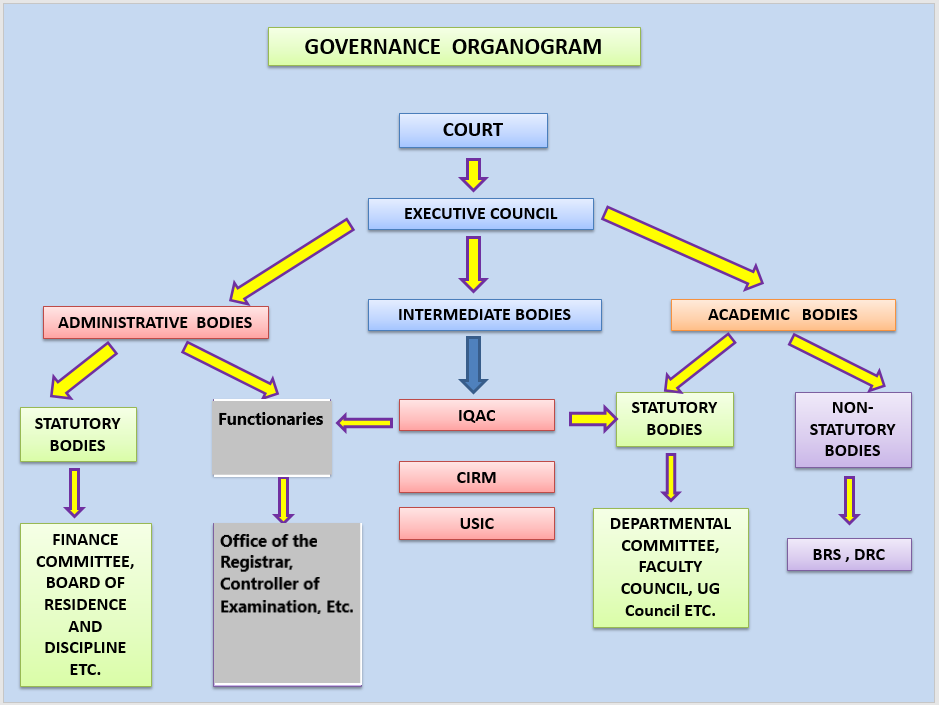
The University has a participative administrative structure with decentralization and strong leadership geared to accomplish excellence in teaching and learning environment, research and extension, and social outreach. The participatory management structure is reflected in the composition of its statutory bodies, the university court, Executive Council, Faculty Councils for Science and Arts Commerce and Law, UG Council, Finance Committee, Departmental Committees, Library Committee, Board of Residence and Discipline, Board of Health and Students’ Welfare, the Governing Bodies of affiliated colleges, all of which include representatives of concerned stakeholders. There are functional non-statutory bodies like Board of Research Studies, Departmental Research Committees, Internal Quality Assurance Cell (IQAC), and so on. All research proposals approved by the DRCs are registered through the Boards of Research Studies. Direct recruitment of teachers and CAS of teachers, officers and non-teaching staff are overseen by the IQAC, which also is responsible for undertaking quality initiatives for overall academic and administrative excellence of the university.
The statutory bodies are properly linked with one another. The Departmental Committees send members to UG and PG Boards of Studies which formulate curricula and recommend panels of paper setters, examiners, moderators, etc. all curricula formulated by the UG Boards of Studies and PG Boards of Studies are considered and approved by the respective councils, UG and PG. The minutes and proceedings of the UG and PG Boards of Studies as well as the Boards of Research Studies are considered and approved by the Executive Council. All diplomas, UG, PG, PhD, DLitt and DSc are conferred by the highest body of the university, the Court.
Administrative decentralization and participatory management is incomplete without financial devolution. The finance rules of the university allow financial sanctioning power to all heads of the department up to Rs. 10,000 per day, and with a committee resolution, Rs. 20,000 per day. All expenditure by a particular body must be according to the annual budgetary allocation, which is formulated on the basis of budget proposals through budget meeting duly approved by the Executive Council and Court. The annual accounts are audited both internally and by the external statutory audit.
Various bodies and facilities cater to the needs of the university community, teachers, officers, staff, and other stakeholders. There are the university’s Sports Board, Health Centre, Watch and Ward Office, Office of the Engineer, Estate Office, and so on, to fulfil various responsibilities towards and social needs of the stakeholders. All these operate following rules framed by the Executive Council and under the direct command and supervision of the Vice-Chancellor.
The Establishment Section of the Office of the Registrar manages students’ registration data and facilitates scholarships, fellowships, etc. The Office of the Registrar is the nodal office of the university for all service records of the employees and the certifying authority for the members of the university community.
The Board of Residence supervises the records of the hostel inmates. Other facilities like ICC, Anti-Ragging Cell and Counselling Centre cater to the security and wellbeing of the learners.